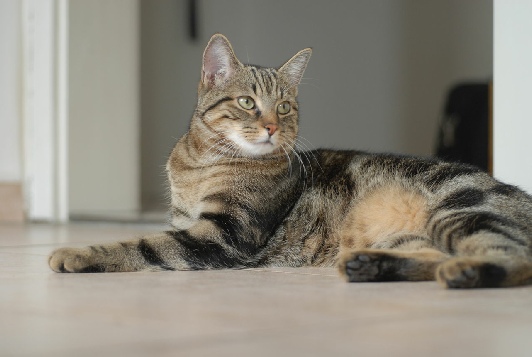Copyright © 2017 wonderding.com USA, Site Map


How to Stop Your Cat from Urinating
Outside their Litter Box
By Julie A. Lind
There are few things more frustrating than when your cat stops using their litter box. It can definitely add a tremendous amount of stress to your household, and can negatively affect your relationship with your cat. In fact, the non-
The first step is to determine why your cat’s behavior has changed. There are three likely causes: medical ailments, territorial marking, or behavioral issues.
Signs that your cat is experiencing urinary problems include blood in the urine and increased frequency of urination. Although only one sixth of cats with urinary problems go outside the litter box, it could be a sign that they need medical attention. Seeing a veterinarian should be your first step so you can eliminate the possibility that health issues are causing your cat’s litter box issues.
You may find that a senior or overweight cat suddenly stops using their litter box. This is often the case when the cat must go up or down steps to get to their litter box. If the box is located too far away an elderly or overweight cat may not be able to get to the litter box in time. Try having a box located on every level of the house.
An arthritic cat may not be able to get up into the litter box if they have painful joints. First check with your veterinarian to determine if your cat has arthritis and if there are any treatments available. You could also try building a small ramp leading up to the litter box if it is painful for your cat to climb into the litter box.
It is a natural behavior for both male and female cats to mark their territory. It should not be confused with a cat urinating outside the litter box. When a cat sprays it will spray a small amount of urine to mark the object. Cats will usually choose objects such as walls, furniture, the floor, or on your clothes or bedding. When a cat is marking an object you will notice that your cat does not sniff and paw at the area like they would after urinating. Instead they will walk away which may leave a trail of urine. Cats may also mark their territory with feces. Signs of this type of territorial marking include defecation in an unusual spot such as on the counter or on your favorite chair.
You can help diminish your cat’s need to mark their territory by using your cat’s own pheromones, or by using a synthetic feline pheromone available in many pet stores. To use your own cat’s pheromones, rub a cloth between your cat’s eye and ear. Then wipe the cloth on the soiled area repeatedly for several weeks. This tells your cat that it is their territory and it doesn’t need to be marked. By placing scratching posts in areas that you have witnessed marking, your cat may mark the object with the scent off their pads and not with their urine. Try to keep stray cats away from your house which may increase your cat’s desire to mark their territory.
Behavior issues are usually caused by the cat not liking something about their litter box. It could be the style of litter, location of the litter box, or stress involved when using the litter box. You should have at least one litter box for each cat you own. Do not place the litter boxes next to each other or near their food source. Make sure the box or boxes are kept clean on a daily basis. Cats are very clean animals, so they will avoid stepping into a dirty box. If your litter boxes are more than a year old, you may need to replace the boxes with newer ones. In older, scratched up litter boxes, the scent of urine can become offensive to your cat over time.
If a new litter box doesn’t work, try switching the type of litter you are using. Your cat has a sense of smell that is 1000 times better than yours, so avoid litters with heavy scents. Some cats are picky about the texture of the litter. Your cat may prefer a more sand-
Take a look at the location of the litter box. Make sure it is located in a convenient, and yet private place away from people and loud noises such as furnaces and washing machines. If you have other pets, make sure they are not intimidating your cat while they are getting to, or using, the litter box. Do not put the box in a small space which may make your cat feel trapped. If you are using a covered litter box try removing the cover to make the cat feel less vulnerable.
A cat may become stressed due to changes in your household. If your family is experiencing a move, divorce, vacation, birth or death of a family member, or loss of a pet, your cat may be acting out in the only way they know how. Consult your veterinarian or animal behaviorist for advice when dealing with these special issues.

Would you like to comment on this article?